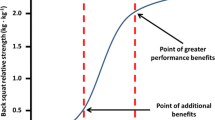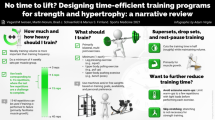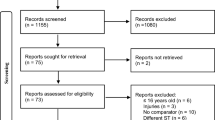Abstract
Background
Traditional Chinese medicine (TCM) based exercises have been widely used in the prevention and treatment of balance, cardiopulmonary, and other related diseases in older adults. However, there seems to be no consensus on the improvement and comparison of physical performance, balance, and muscle strength in the elderly population.
Objectives
To systematically examine the impact of different TCM-based exercises on physical performance, balance, and muscle strength outcomes in the elderly.
Methods
We searched PubMed, EMBASE, Scopus, and Cochrane Center, CNKI and Wan Fang between their date of inception and March 2021. This meta-analysis was performed using RevMan5.3 software. Only randomized controlled trials (RCT) or controlled clinical trials (CCT) were considered in TCM-based exercises (Tai Chi, Ba Duan Jin, Qigong). The overall mean difference (MD) or standardized mean difference (SMD), and its 95% confidence interval (CI) were calculated.
Main results
A total of 27 studies with 2580 older adults met the inclusion criteria. The pooled analysis indicated that Tai Chi could be more effective in Times up and go (TUG) (MD = − 2.62, 95% CI − 4.00 to − 1.24, P = 0.0002), 5 times sit-stand (MD = − 1.89; 95%CI − 3.38 to − 0.40; P = 0.01), and handgrip strength outcomes (SMD = 0.69; 95%CI 0.52–0.86; P < 0.0001) compared to Ba Duan Jin and Qigong. The older adults performing Qigong could have a better benefit in Single-bed balance (SLB) with eyes closed compared to Tai Chi and Ba Duan Jin (MD = 3.42; 95%CI 1.55 to 5.29; P = 0.0003). Tai Chi also had benefits in terms of balance outcomes compared to those in the control group: Berg Balance scale (BBS) (MD = 1.41; 95% CI 0.03–2.85; P = 0.05), Functional reach test (FRT) (MD = 1.57; 95%CI 1.22–1.93; P < 0.0001). The Tai Chi study meta-analysis demonstrated significant effects on lower limb strength: knee extension (SMD = 0.56; 95%CI 0.26–0.86; P = 0.0003), ankle dorsiflexion (SMD = 0.67; 95%CI 0.02–1.31; P = 0.04) compared to the controls.
Conclusion
This systematic review reveals that TCM-based exercises can effectively improve physical performance outcomes, balance outcomes, and muscle strength in the elderly population. While there is limited evidence on the efficacy of other TCM-based lifestyle interventions, more high-quality clinical trials on this topic are warranted.










Similar content being viewed by others
References
Meurman JH, Mckenna G, Murtomaa H et al (2018) Managing our older population: the challenges ahead. J Dent Res. https://doi.org/10.1177/0022034518784916
Noroozian M (2012) The elderly population in Iran: an ever growing concern in the health system. Iran J Psychiatry Behavi Sci 6:1–6
Stagi S, Doneddu A, Mulliri G et al (2020) Lower percentage of fat mass among Tai Chi Chuan practitioners. Int J Environ Res Public Health 17:1232
Koolhaas CM, Dhana K, Rooij FJAV et al (2017) Physical activity types and health-related quality of life among middle-aged and elderly adults: the Rotterdam Study. J Nutr Health Aging 22:1–8
Wen DT, Zheng L, Yang F et al (2018) Endurance exercise prevents high-fat-diet induced heart and mobility premature aging and dsir2 expression decline in aging drosophila. Oncotarget 9:7298
Cadore EL, Pinto RS, Bottaro M et al (2014) Strength and endurance training prescription in healthy and frail elderly. Aging Dis 5:183
Chen HT, Chung YC, Chen YJ et al (2017) Effects of different types of exercise on body composition, muscle strength, and IGF-1 in the elderly with sarcopenic obesity. J Am Geriatr Soc 65:827
Liao ZY, Chen JL, Xiao MH et al (2017) The effect of exercise, resveratrol or their combination on Sarcopenia in aged rats via regulation of AMPK/Sirt1 pathway. Exp Gerontol 98:177–183
Chodzko-Zajko WJ, Proctor DN, Singh MAF et al (2009) Exercise and physical activity for older adults. Med Sci Sports Exerc 41:992–1008
Qin Y, Xia W, Huang W et al (2020) The beneficial effect of traditional chinese exercises on the management of obesity. Evid Based Complement Alternat Med 2020:2321679
Mazzeo RS, Cavanagh P (2018) American college of sports medicine position stand. Exercise and physical activity for older adults. Med Sci Sports Exer 30:992–1008
Bao X, Qiu QX, Shao YJ et al (2019) Effect of sitting Ba-Duan-Jin exercises on balance and quality of life among older adults: a preliminary study. Rehabil Nurs 45:271–278
Huang Y, Liu X (2015) Improvement of balance control ability and flexibility in the elderly Tai Chi Chuan (TCC) practitioners: a systematic review and meta-analysis. Arch Gerontol Geriatr 60:233–238
Chan JSM, Ho RTH, Ka-Fai C et al (2014) Qigong exercise alleviates fatigue, anxiety, and depressive symptoms, improves sleep quality, and shortens sleep latency in persons with chronic fatigue syndrome-like illness. Evid Based Complement Altern Med 2014:106048
Zou L, Han J, Li C et al (2018) The effects of Tai Chi on lower limb proprioception in adults aged over 55: a systematic review and meta-analysis article type: systematic/meta-analytic reviews. Arch Phys Med Rehabil 100:1102–1113
Wang XQ, Pi YL, Chen PJ (2016) Traditional Chinese exercise for cardiovascular diseases: systematic review and meta-analysis of randomized controlled trials. J Am Heart Assoc 5:e002562
Yu X, Chau JPC, Huo L (2018) The effectiveness of traditional Chinese medicine-based lifestyle interventions on biomedical, psychosocial, and behavioral outcomes in individuals with type 2 diabetes: A systematic review with meta-analysis. Int J Nurs Stud 80:165–180
Michnik R, Nowakowska K, Jurkoj J et al (2017) Motor functions assessment method based on energy changes in gait cycle. Acta Bioeng Biomech 19:63–75
Moher D, Liberati A, Tetzlaff J et al (2009) Preferred reporting items for systematic reviews and meta-analyses: the PRISMA statement. PLoS Med 6:e1000097
Cumpston M, Li T, Page MJ et al (2019) Updated guidance for trusted systematic reviews: a new of the cochrane handbook for systematic reviews of interventions. Cohrane Database of Syst Rev 10:ED000142
Li F, Harmer P, Fitzgerald KJ et al (2018) Effectiveness of a therapeutic Tai Ji Quan intervention vs a multimodal exercise intervention to prevent falls among older adults at high risk of falling: a randomized clinical trial. JAMA Intern Med 178:1301–1310
Audette JF, Soo JY, Renee N et al (2006) Tai Chi versus brisk walking in elderly women. Age Ageing 35:388–393
Chewning B, Hallisy KM, Mahoney JE et al (2019) Disseminating Tai Chi in the community: promoting home practice and improving balance. Gerontologist 60:765–775
Wolf SL, Sattin RM, Kutner M et al (2003) Intense tai chi exercise training and fall occurrences in older, transitionally frail adults: a randomized, controlled trial. J Am Geriatr Soc 51:8
Liu XD, Jing HG, Gu YH et al (2010) Effect of Qigong-Yi Jinjing on the physical quality of elderly women. Contemporary Med 16:3–4
Hosseini L, Kargozar E, Sharifi F et al (2018) Tai Chi Chuan can improve balance and reduce fear of falling in community dwelling older adults: a randomized control trial. J Exer Rehabil 14:1024
The research of Health Qigong-Yijinjing to improve the elderly women's balanced capacity (Master thesis, Beijing Sport University). https://kns.cnki.net/KCMS/detail/detail.aspx?dbname=CMFD201702&filename=1017103869.nh
Li JX, Xu DQ, Hong Y (2009) Changes in muscle strength, endurance, and reaction of the lower extremities with Tai Chi intervention. J Biomech 42:967–971
Lin L, Liye Z, Qun F et al (2017) Effect of Taichi Softball on function-related outcomes in older adults: a randomized control trial. Evid Based Complement Altern Med 2017:1–6
Liu XY, Gao J, Yin BX et al (2016) Efficacy of Ba Duan Jin in improving balance: a study in chinese community-dwelling older adults. J Gerontol Nurs 42:38–46
Li F, Harmer P, Fisher KL et al (2005) Tai Chi and fall reductions in older adults: a randomized controlled trial. J Gerontol A Biol Sci Med Sci 60:7
Zhang JG, Ishikawa-Takata K, Yamazaki H et al (2006) The effects of Tai Chi Chuan on physiological function and fear of falling in the less robust elderly: an intervention study for preventing falls. Arch Gerontol Geriatr 42:107–116
Woo J, Hong A, Lau E et al (2007) A randomised controlled trial of Tai Chi and resistance exercise on bone health, muscle strength and balance in community-living elderly people. Age Ageing 36:6
Zhang BX (2009) The effect of Yijinjing on balance of healthy older adults. Beijing University of Chinese Medicine, Beijing
Lu X, Hui-Chan CW, Tsang WW (2012) Effects of Tai Chi training on arterial compliance and muscle strength in female seniors: a randomized clinical trial. Eur J Prev Cardiol 20:238–245
Wang QQ (2012) An experimental study on the effects of Wuqinxi upon physical quality of 60–69 year old people. Shandong Sport University, Shandong
Song QH, Zhang QH, Xu RM et al (2014) Effect of Tai-chi exercise on lower limb muscle strength, bone mineral density and balance function of elderly women. Int J Clin Exp Med 7:1569–1576
Liu XY, Gao J, Yang XY et al (2014) Influence of Ba Duan Jin sport on reducing risk of falls in elderly. Hu Li Yan Jiu 000:4289–4291
Yıldırım P, Ofluoglu D, Aydogan S et al (2016) Tai Chi vs. combined exercise prescription: a comparison of their effects on factors related to falls. J Back Musculoskelet Rehabil 29:493
Zhu YQ, Peng N, Zhou M (2016) Effect of Tai Ji Quan training on strength and function of lower limbs in the aged. Zhongguo Zhong xi yi jie he za zhi Zhongguo Zhongxiyi jiehe zazhi Chin J Integr Trad Western Med Zhongguo Zhong xi yi jie he xue hui, Zhongguo Zhong yi yan jiu yuan zhu ban 36:49
Zhao Y, Chung PK, Tong TK (2017) Effectiveness of a balance-focused exercise program for enhancing functional fitness of older adults at risk of falling: a randomised controlled trial. Geriatr Nurs 38:491–497
Zhu GF, Shen ZF, Shen QH et al (2017) Effect of Yi Jin Jing (Sinew-transforming Qigong Exercises) on skeletal muscle strength in the elderly. J Acupunct Tuina Sci 15:434–439
Penn IW, Sung WH, Lin CH et al (2019) Effects of individualized Tai-Chi on balance and lower-limb strength in older adults. BMC Geriatr 19:1–8
Zhu YQ, Peng N, Zhou M et al (2019) Tai Chi and whole-body vibrating therapy in sarcopenic men in advanced old age: a clinical randomized controlled trial. Eur J Ageing 16:9
Fang L, Li ZR, Tao XC et al (2020) Effects of Yi Jin Jing on the risk of falling of sarcopenia and disequilibrium elderly. Chin J Rehabil Med 35:5
Qi MD (2020) Effects of Wuqinxi on balance ability, gait, lower limb muscle strength and life quality of community elderly. Shanghai Normal University, Shanghai
Zhou J, Zhao Y, Wei M (2020) Research on the effects of Baduanjin on balance ability, fall risk and lower extremity surface EMG in the elderly. Lishizhen Med Mater Med Res 31:124–126
Hong Y, Li JX, Robinson PD (2000) Balance control, flexibility, and cardiorespiratory fitness among older Tai Chi practitioners. Br J Sports Med 34:29
Wolf S, Barnhart HX, Kutner NG et al (2003) Selected as the best paper in the 1990s: reducing frailty and falls in older persons: an investigation of tai chi and computerized balance training. J Am Geriatr Soc 51:9
Xu DQ, Li JX, Hong Y (2006) Effects of long term Tai Chi practice and jogging exercise on muscle strength and endurance in older people. Br J Sports Med 40:50
Chang PS, Knobf T, Oh B et al (2019) Physical and psychological health outcomes of qigong exercise in older adults: a systematic review and meta-analysis. Am J Chin Med 47:301–322
Guo C, Xiang G, Xie L et al (2020) Effects of Tai Chi training on the physical and mental health status in patients with chronic obstructive pulmonary disease: a systematic review and meta-analysis. J Thorac Dis 12:504–521
Liang H, Luo S, Chen X et al (2020) Effects of Tai Chi exercise on cardiovascular disease risk factors and quality of life in adults with essential hypertension: a meta-analysis. Heart Lung 49:10
Mu WQ, Huang XY, Zhang J et al (2018) Effect of Tai Chi for the prevention or treatment of osteoporosis in elderly adults: protocol for a systematic review and meta-analysis. BMJ Open 12:17
Wong AM, Pei YC, Lan C et al (2009) Is Tai Chi Chuan effective in improving lower limb response time to prevent backward falls in the elderly? Age (Dordr) 31:163–170
Funding
The study is supported by Major Sports Research Project of Jiangsu Sports Bureau (NO. ST192101). The funder had and will not have a role in any of the aspects in the study design, data collection and analysis, publication, or development of the manuscript.
Author information
Authors and Affiliations
Corresponding author
Ethics declarations
Conflict of interest
Authors declare that there are no conflicts of interest regarding the publication of this paper.
Statement of human and animal rights
This article does not contain any studies with human participants or animals performed by any of the authors.
Informed consent
Informed consent was obtained from all individual participants included in the study.
Additional information
Publisher's Note
Springer Nature remains neutral with regard to jurisdictional claims in published maps and institutional affiliations.
Supplementary Information
Below is the link to the electronic supplementary material.
Rights and permissions
About this article
Cite this article
Wang, C., Liang, J., Si, Y. et al. The effectiveness of traditional Chinese medicine-based exercise on physical performance, balance and muscle strength among older adults: a systematic review with meta-analysis. Aging Clin Exp Res 34, 725–740 (2022). https://doi.org/10.1007/s40520-021-01964-2
Received:
Accepted:
Published:
Issue Date:
DOI: https://doi.org/10.1007/s40520-021-01964-2




